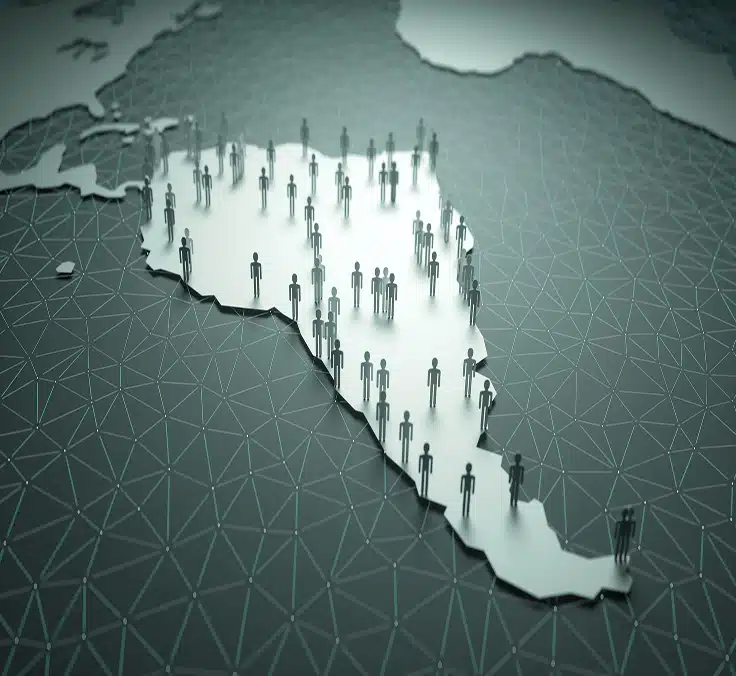INSURANCE | 09.26.2025
Insurance: A Key Partner in Driving Global Tourism
Across much of the world, tourism is a leading sector, generating millions of jobs and supporting businesses of all sizes, making it one of the most powerful economic engines globally. In an environment filled with diverse risks, travel and assistance insurance play a vital role, not only in protecting travelers, but also in supporting the economic vitality of the tourism industry.
Since 1980, September 27 has been observed as World Tourism Day. Its purpose is to highlight the importance of the sector, along with its social, cultural, political, and economic value. The date was proposed by the World Tourism Organization (UNWTO)—today UN Tourism—to commemorate the adoption of its statutes a decade earlier. Its observance also coincides with the end of the peak vacation season in the Northern Hemisphere and the start of the high season in the Southern Hemisphere.
This year, the celebration is taking place in South Asia under the theme: “Tourism and Sustainable Transformation,” drawing global attention to the urgent need for more sustainable travel practices within this dynamic sector.
The numbers speak for themselves
According to figures published by the organization, tourism has steadily diversified over recent decades and has become one of the world’s largest and fastest-growing industries.
No surprise there: the World Travel & Tourism Council (WTTC) reports that in 2024 the sector generated 11 trillion dollars—more than 10% of global GDP—and provided employment for over 348 million people, equivalent to one in every ten jobs worldwide. For many emerging economies, tourism accounts for as much as 20% of their gross domestic product.
The latest UN Tourism World Barometer, released in May 2025, shows that more than 300 million tourists traveled internationally in the first three months of the year, about 14 million more than during the same period in 2024.
These results came despite the sector facing a series of geopolitical and trade tensions. The increase in travel, coupled with higher visitor spending in many destinations, underscores the industry’s resilience in the face of numerous challenges—offering welcome news for economies and workers around the globe.
Climate change and the 2030 Agenda
2019 was the second warmest year of all time and marked the end of the warmest decade we have ever recorded. Moreover, in the same year, carbon dioxide levels and other greenhouse gases (GHGs) in the atmosphere reached record highs. In the absence of action, the Earth's average surface temperature will rise by approximately three degrees Celsius during this century.
We are seeing the effects of climate change on our own skin, including changes in weather patterns, rising sea levels, and the most intense weather events we have ever seen. In addition, these effects of climate change adversely affect the economy and the lives of individuals, communities, and countries, particularly the poorest and most vulnerable.
According to scientific consensus, we are at a crucial point in time when we can no longer allow irreversible changes to occur to the planet's ecosystems and climate. The 2022 edition takes place at a particularly relevant moment, because only a few weeks after Earth Hour, the COP15 of the United Nations Convention on Biological Diversity will take place, at which a new global action plan capable of halting and reversing biodiversity loss will be discussed.
Insurance: a key ally
Tourism, widespread across the globe, continues to grow. But alongside its expansion come threats such as political instability, natural disasters, climate events, and personal accidents. In this context, the insurance industry has emerged as an essential partner in sustaining the sector’s momentum.
The rise in travel-related risks is fueling demand for insurance, tailor-made protection, and parametric products—policies designed to cover and compensate for very specific damages. Traveling without insurance is increasingly becoming a thing of the past. The Global Travel Insurance Market report notes that last year the global travel insurance market was valued at 28.87 billion dollars, a figure that could reach 94.66 billion dollars by the year 2032 if current trends continue. This increase is explained by factors such as the rise in tourism demand and advances in technology.
According to the Social Insurance Report published by UNESPA, in 2024 more than 15 million travelers in Spain were insured. Of all claims handled, the most frequent were illnesses and hospitalizations (51.3%), followed by accidents (20%).
Protecting tourists…
Travelers may have to deal with a wide range of incidents. Around 70% of claims are related to medical assistance, 15% to cancellations, and the remaining 15% divided equally among lost luggage, flight delays, and other coverages such as lost documents.
MAPFRE, through MAWDY, its assistance unit, offers comprehensive protection for travelers, with a network of service providers ready to assist policyholders with any incident they encounter along the way. This includes travel delays, providing medical assistance at their destination, or handling any other necesity that’s covered by their policy. Our services include telemedicine, online consultations, and even locating medical facilities like pharmacies and hospitals.
… and safeguarding the industry
In addition to personal travel insurance, companies in the tourism industry also need protection. Travel agencies, hotels, cruise lines, and theme parks all require a variety of policies, including liability, property damage, mass cancellations, accidents, and more. For this sector, insurance serves as a financial shield, covering losses and allowing vulnerable destinations to remain active even in the face of emergencies or disasters.
The alliance between insurance and tourism is a proven formula for success, as supported by these factors:
- It builds traveler confidence in the face of events such as illness, accidents, or cancellations.
- It reduces risk for tourism providers, for whom insurance acts as a true safety net.
- It boosts competitiveness, since safety and security always attract more tourists.
- And ultimately, it brings greater macroeconomic stability: insured tourism helps reduce economic losses and sustains industry growth.
Our offer
MAPFRE provides solutions for everyone – protecting companies in the sector of every type and size, wherever they operate, and offering peace of mind to travelers with cancellation cover, health care, 24-hour assistance, and any other specific coverage they may require. We are fully prepared, supporting the industry and accompanying our policyholders on their journeys to make travel easier, safer, and more secure.
RELATED ARTICLES:




